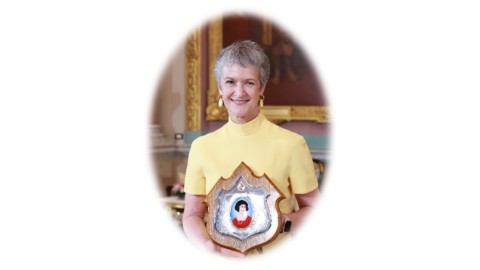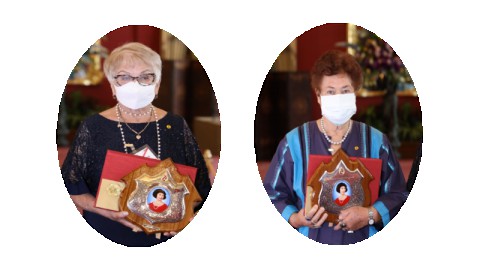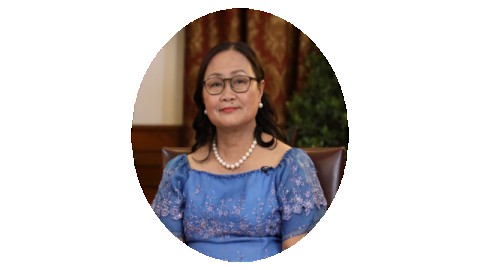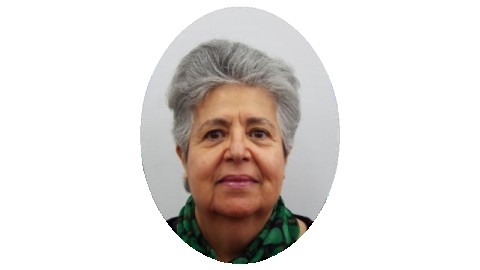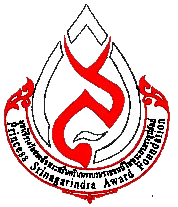
Princess Srinagarindra Award Foundation
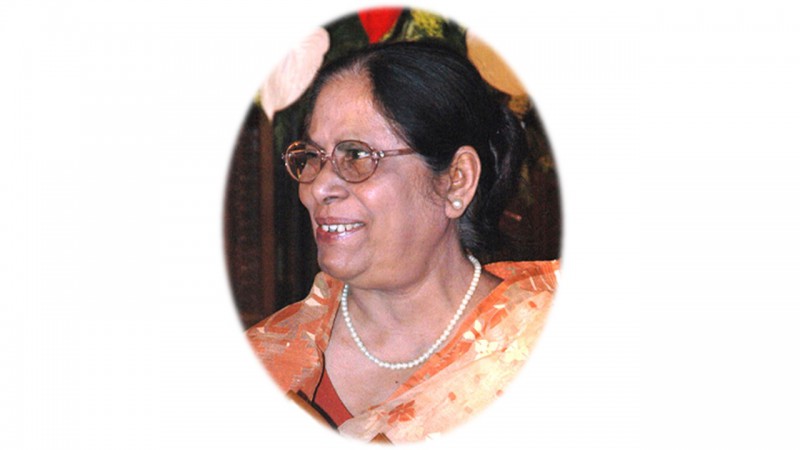
Miss Akhtar Banu, Laureate2005
Miss Akhtar Banu started her career as a staff nurse at Dhaka Medical College Hospital and was promoted a nurse supervisor, a superintendent, a nursing director and deputy chief nurse for education, Ministry of Health & Family Welfare, responsible for nursing education of the entire country. Miss Akhtar Banu has dedicated herself throughout her working life for the development and enhancement of nursing standard and improvement of the quality of nursing for the benefit of the people. She initiated and pioneered in the establishment of Bangladesh Nurses Association and has been working collaboratively with Bangladesh Nursing Council, International Council of Nurses as well as Commonwealth Nurses Federation for the development of nursing, nationally and internationally,
Among her numerous outstanding achievements, Miss Akhtar Banu was able to successfully solve the problem of acute shortage of nurses in her country. After liberation of Bangladesh, there were approximately 50 nurses in the entire country, most of whom left after several years of work. Bangladesh ran into acute shortage of nurses to deliver care in the health service system. Miss Akhtar Banu, along with her colleagues, opened and developed two nursing schools. Because of the cultural barrier and social stigma, it was not acceptable for women to work outside their homes and thus, the enrollment of nursing students into the newly started schools was extremely difficult. Miss Banu and a group of senior nurses went to girl’s schools and homes throughout the country giving lectures, talking to the girls, teachers and parents about nursing and the needs for the country. Slides and tapes regarding nursing profession were made and shown in cinema halls. Nursing weeks and exhibitions were arranged as an additional channel for public relations and education. Consequently, the student enrollments increased. With Miss Banu ’s untiring efforts, additional of 35 new nursing schools have been established to make 37 throughout Bangladesh. The training programs for nurse teachers developed by Miss Banu were supported by the World Health Organization and were implemented to increase the number of nurse teachers in all nursing schools. Through these efforts, the acute shortage of nurses in the country was reduced.
Miss Akhtar Banu, as a member of Bangladesh Nursing Council, has dedicated her work in setting curriculum standard, inspecting the nursing schools, conducting examinations, setting up teaching-learning workshops as well as policies for the nursing profession. She coordinated activities on the development of the first research cell in nursing college. With the support of WHO, Miss Banu served as a focal point, working collaboratively with Adelaide University, Australia, to start Bangladesh’s first Master Program in Nursing, which has consequently increased the number of qualified nurse teachers.
As an administrator, Miss Akhtar Banu, has devoted her working life to improve the quality of nursing care through collaboration with nursing schools by creating and implementing in-service education programs for staff nurses, supervisors and administrators. Nursing techniques had been updated. New concepts such as holistic nursing care, management, teamwork, and nurse-patient relationship had greatly contributed not only to the improvement of nursing services, but also the status of the nursing profession.
In addition to strengthening hospital nursing services, Miss Akhtar Banu has been instrumental in expanding nurses’ roles in providing care for the people at the primary care level. Her article titled “Roles/Responsibility of Nurses in Giving Primary Health Care Services” was published and has been used as guideline for community health training. At present, there are public health nurses working in communities throughout the country, enabling the people to have access to quality nursing service close to home.
Miss Akhtar Banu has been recognized as a visionary leader even before liberation, as she was one of the pioneers who actively participated in the establishment of the Trained Nurses Association of Pakistan. After liberation of the country, Miss Banu recognized the need of Bangladesh to have the National Nurses Association to function as a focal point for the organization of professional development activities. Thus, she was actively involved in the formation of Bangladesh Nurses Association (BNA), with its new constitution and registration. Miss Banu had served as Secretary General of the Bangladesh Nurses Association for many years. With her involvement, BNA has been able to open many branches to serve its members throughout the country. Miss Banu has worked collaboratively with the Commonwealth Nurses Federation, International Council of Nurses and other international organizations, providing the opportunity for the development of nursing and midwifery in Bangladesh. She successfully negotiated with the Government to raise the pay scale and the status of nurses.
Miss Akhtar Banu was appointed representative of Bangladesh nurses to work as coordinator and nurse consultant in all nurse-related projects of the Ministry of Health & Family Welfare, supported by International Funding Agencies. She took active part in the preparation and development of “Nursing Plan of Action of Bangladesh” with extensive situation assessment and brainstorming with the WHO Task Force Committee. This plan of action has been implemented step by step by the Government and WHO. Miss Akhtar Banu was invited by WHO South East Asia Regional Office to work as a nurse consultant to the Government of Nepal, particularly in terms of education and evaluation of nursing institutes, which had great impact on the development of nursing profession in that country.
Due to her enormous experience and expertise, Miss Akhtar has been invited as guest speaker for various academic programmes. She has published important academic papers and textbooks on nursing education and services, such as Roles and Responsibilities of Nurse in Giving Primary Health Care Services, as mentioned earlier, Methods of Resuscitation and Life Saving, Prevention and Care of Drug Addiction/Dependence, and many more. She has served as co-editor of Journal of College of Nursing, Bangladesh. Her article on “Public Health Nursing” published in the textbook “Public Health Medicine”, is widely used in various nursing schools. Miss Banu is now co-writing a book on “History of Nursing in Bangladesh” together with one of her colleague nurse leaders. Miss Akhtar Banu has received the prestigious National Award Tamgla-e-Khidmat from the Government of Pakistan, and Boston University Alumni Award for her distinguished public service to the community.
Her dedication, self sacrifice, courage, and efforts to combat the problem of acute shortage of nurses and midwives, even by changing the public stigma toward women working outside their homes, the improvement of the quality of nursing, education, service and management, have all been recognized nationally and internationally.
Miss Akhtar Banu truly deserves the honour of being conferred with the Princess Srinagarindra Award for the year BE 2548 (AD.2005).
Miss Akhtar Banu started her career as a staff nurse at Dhaka Medical College Hospital and was promoted a nurse supervisor, a superintendent, a nursing director and deputy chief nurse for education, Ministry of Health & Family Welfare, responsible for nursing education of the entire country. Miss Akhtar Banu has dedicated herself throughout her working life for the development and enhancement of nursing standard and improvement of the quality of nursing for the benefit of the people. She initiated and pioneered in the establishment of Bangladesh Nurses Association and has been working collaboratively with Bangladesh Nursing Council, International Council of Nurses as well as Commonwealth Nurses Federation for the development of nursing, nationally and internationally,
Among her numerous outstanding achievements, Miss Akhtar Banu was able to successfully solve the problem of acute shortage of nurses in her country. After liberation of Bangladesh, there were approximately 50 nurses in the entire country, most of whom left after several years of work. Bangladesh ran into acute shortage of nurses to deliver care in the health service system. Miss Akhtar Banu, along with her colleagues, opened and developed two nursing schools. Because of the cultural barrier and social stigma, it was not acceptable for women to work outside their homes and thus, the enrollment of nursing students into the newly started schools was extremely difficult. Miss Banu and a group of senior nurses went to girl’s schools and homes throughout the country giving lectures, talking to the girls, teachers and parents about nursing and the needs for the country. Slides and tapes regarding nursing profession were made and shown in cinema halls. Nursing weeks and exhibitions were arranged as an additional channel for public relations and education. Consequently, the student enrollments increased. With Miss Banu ’s untiring efforts, additional of 35 new nursing schools have been established to make 37 throughout Bangladesh. The training programs for nurse teachers developed by Miss Banu were supported by the World Health Organization and were implemented to increase the number of nurse teachers in all nursing schools. Through these efforts, the acute shortage of nurses in the country was reduced.
Miss Akhtar Banu, as a member of Bangladesh Nursing Council, has dedicated her work in setting curriculum standard, inspecting the nursing schools, conducting examinations, setting up teaching-learning workshops as well as policies for the nursing profession. She coordinated activities on the development of the first research cell in nursing college. With the support of WHO, Miss Banu served as a focal point, working collaboratively with Adelaide University, Australia, to start Bangladesh’s first Master Program in Nursing, which has consequently increased the number of qualified nurse teachers.
As an administrator, Miss Akhtar Banu, has devoted her working life to improve the quality of nursing care through collaboration with nursing schools by creating and implementing in-service education programs for staff nurses, supervisors and administrators. Nursing techniques had been updated. New concepts such as holistic nursing care, management, teamwork, and nurse-patient relationship had greatly contributed not only to the improvement of nursing services, but also the status of the nursing profession.
In addition to strengthening hospital nursing services, Miss Akhtar Banu has been instrumental in expanding nurses’ roles in providing care for the people at the primary care level. Her article titled “Roles/Responsibility of Nurses in Giving Primary Health Care Services” was published and has been used as guideline for community health training. At present, there are public health nurses working in communities throughout the country, enabling the people to have access to quality nursing service close to home.
Miss Akhtar Banu has been recognized as a visionary leader even before liberation, as she was one of the pioneers who actively participated in the establishment of the Trained Nurses Association of Pakistan. After liberation of the country, Miss Banu recognized the need of Bangladesh to have the National Nurses Association to function as a focal point for the organization of professional development activities. Thus, she was actively involved in the formation of Bangladesh Nurses Association (BNA), with its new constitution and registration. Miss Banu had served as Secretary General of the Bangladesh Nurses Association for many years. With her involvement, BNA has been able to open many branches to serve its members throughout the country. Miss Banu has worked collaboratively with the Commonwealth Nurses Federation, International Council of Nurses and other international organizations, providing the opportunity for the development of nursing and midwifery in Bangladesh. She successfully negotiated with the Government to raise the pay scale and the status of nurses.
Miss Akhtar Banu was appointed representative of Bangladesh nurses to work as coordinator and nurse consultant in all nurse-related projects of the Ministry of Health & Family Welfare, supported by International Funding Agencies. She took active part in the preparation and development of “Nursing Plan of Action of Bangladesh” with extensive situation assessment and brainstorming with the WHO Task Force Committee. This plan of action has been implemented step by step by the Government and WHO. Miss Akhtar Banu was invited by WHO South East Asia Regional Office to work as a nurse consultant to the Government of Nepal, particularly in terms of education and evaluation of nursing institutes, which had great impact on the development of nursing profession in that country.
Due to her enormous experience and expertise, Miss Akhtar has been invited as guest speaker for various academic programmes. She has published important academic papers and textbooks on nursing education and services, such as Roles and Responsibilities of Nurse in Giving Primary Health Care Services, as mentioned earlier, Methods of Resuscitation and Life Saving, Prevention and Care of Drug Addiction/Dependence, and many more. She has served as co-editor of Journal of College of Nursing, Bangladesh. Her article on “Public Health Nursing” published in the textbook “Public Health Medicine”, is widely used in various nursing schools. Miss Banu is now co-writing a book on “History of Nursing in Bangladesh” together with one of her colleague nurse leaders. Miss Akhtar Banu has received the prestigious National Award Tamgla-e-Khidmat from the Government of Pakistan, and Boston University Alumni Award for her distinguished public service to the community.
Her dedication, self sacrifice, courage, and efforts to combat the problem of acute shortage of nurses and midwives, even by changing the public stigma toward women working outside their homes, the improvement of the quality of nursing, education, service and management, have all been recognized nationally and internationally.
Miss Akhtar Banu truly deserves the honour of being conferred with the Princess Srinagarindra Award for the year BE 2548 (AD.2005).
